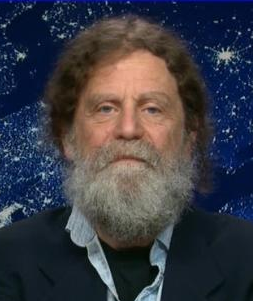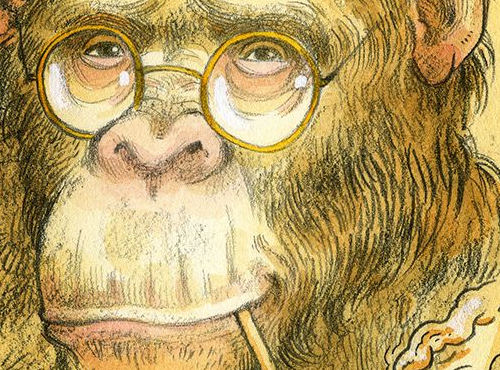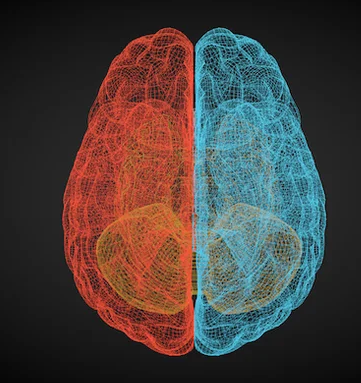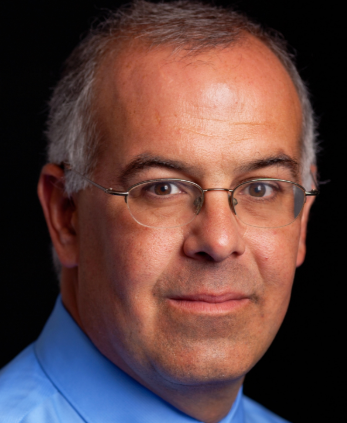Dear WesleyNexus Colleague:
Pentecost will be celebrated on June 9, 2019. As depicted in the book of Acts, the disciples, Mary and some other women and Jesus’ brothers had returned to Jerusalem. Meeting in a house together with others from many different lands, they were touched by a spiritual experience described as a violent wind and tongues of fire, filling these disparate individuals with a unity that, though speaking different languages, bridged their differences and formed a community. As described in Acts, this community group coalesced as a community on their belief in what was being accomplished in Jesus, shared all things in common, sold their possessions and distributed the proceeds for those in need. Breaking bread together, they shared a common meal and celebrated “praising God and having the goodwill of all the people”. (Acts 2:43-47)
This legendary story is foundational to the Christian faith but one which does not fit well with the mixed history of the Christian church nor with the developments of human nature that has evolved from our ancient ancestors to the present. This month, we highlight articles that address some of the problems and the promises of being human. As people of faith, we recognize our failings which seem to be passed down from generation to generation, causing conflict, alienation and injustice. In spite of these challenges, we are also people of hope, seeing promise in the transforming experiences depicted in the spirit of the early church as described by the writers of the New Testament. The articles below address some of these issues and offer some suggestions for overcoming them.
We are still in need of funds to replenish our finances in order to continue for another year. We will need your support and hope you will consider helping us out. WesleyNexus is a 501(c)(3) charitable, educational organization, and we will acknowledge all gifts from individuals for tax reporting purposes. Thanks in advance for your support.
God Bless,
Rick, Mayard and the rest of the
WesleyNexus Board of Directors
*********************************
What neuroscience has to do with nationalism by Fareed Zakaria, GPS

Stanford Neuroscientist Robert Sapolsky tells Fareed our brains are hardwired to feel animosity in response to seeing people who are different.
In this short video, Fareed Zakaria interviews Stanford Neuroscientist Robert Sapolsky on the recent article in Foreign Affairs that looks at the neurotheological foundation of our animosity towards those who are different. As Sapolsky points out, we are hardwired to process ingroup members differently from outgroups. We have built-in biases that operate at the neurological level and promote negative feelings, even disgust, towards those who are viewed as outside our community. Autocrats seem to be able to kick this response into overdrive enabling the dehumanization that can lead to genocide. Jews, Muslims, African Americans, Native Americans, and Hispanics and people with disabilities have all been (and still are) targets of disdain and violence across the world and in our country. Tribalism seems to be our truly original sin, one that proved to be advantageous in evolutionary development but also an impediment to our on-going moral and spiritual growth. As Sapolsky points out, “there are all sorts of neuro-pathways that analyze the world in terms of cause and effect. The knowledge that one person—or a bunch of high school students—really can make a difference can be inspiring. That means certain pathways have been facilitated, and as a result of that, certain behaviors become more likely.” In a similar fashion, the gathering of the disciples with a shared sense of meaning and purpose could facilitate the creation of new neural pathways which can lead to new forms of being together.
The video can be found here. An interview with Sapolsky by Tom Jacobs “Why Engage in Tribalism, Nationalism and Scapegoating” called can be found here.
*********************************
A Legendary Scientist Sounds Off on the Trouble With STEM
E.O. Wilson on the next big thing, the gladiatorial nature of academe, and the world beyond the human senses By Charlie Tyson

E. O. Wilson, now 90 years of age has just released a new book, Genesis, where he tackles the mechanisms in our species history that has enabled altruism to develop. In short, Wilson proposes that within groups, selfish individuals beat altruistic individuals but between groups, altruistic groups bead selfish groups. At one time, Wilson was a proponent of kin selection where altruism developed from the promotion of one’s genetic kin even to the expense of one’s own survival, but this idea has given way to group-selection where group interest takes precedence. “In human terms, family is not so important after all; altruism emerges to protect social groups whether they are kin or not. When people compete against each other they are selfish, but when group selection becomes important, then the altruism characteristic of human societies kicks in, Wilson says. We may be the only species intelligent enough to strike a balance between individual and group-level selection, but we are far from perfect at it. The conflict between the different levels may produce the great dramas of our species: the alliances, the love affairs, and the wars”. (From #3: “E.O. Wilson’s Theory of Altruism Shakes Up Understanding of Evolution” by Pamela Weintraub) The recent, wide ranging interview by Charlie Tyson can be found here.
*********************************
Empathy, Morality, Community, Culture—Apes Have It All by Steve Paulson

Steven Paulson interviewed Frans De Waal, one of the world’s most well-known primatologists who runs the Living Links Center at the Yerkes National Primate Research Center in Atlanta. “De Waal’s body of work adds up to a sustained argument against human exceptionalism. His 2013 book, The Bonobo and the Atheist , takes aim at critics and dissenters—anthropologists, behaviorists, Christian fundamentalists—and at the “strident atheism” of Richard Dawkins and Christopher Hitchens. De Waal, a non-believer himself, sees religion as an offshoot of our biological drive to do good. The interview below was conducted on the heels of the release of The Bonobo and the Atheist. De Waal was an amiable conversationalist with a sly sense of humor. He was a fast talker, bursting with ideas, displaying the self-assurance of a prominent scientist who’s fought his share of intellectual battles.” The article can be found here.
*********************************
Today’s Biggest Threat: The Polarized Mind by Kirk J. Schneider, Sayyed Mohsen Fatemi on April 16, 2019

Echoing the themes presented by Robert Sapolsky, Kirk Schneider and Sayyed Fatemi highlight the source of much destructive human behavior as the outcome of the polarized mind. “The polarized mind is the fixation on a single point of view to the utter exclusion of competing points of view, and it has caused more human torment and misery than virtually any other factor.” While many factors feed into it, the emotions the authors identify, fear and anxiety, are common denominators that contribute to the polarized response. Over the years, practices of mindfulness have proven to be effective in reducing fear and anxiety. The authors highlight a group called the Better Angels, a group that Kirk Schneider works with, to promote cross-cultural dialog. The article can be found here.
*********************************
Weaving the World: Feminist Theology and Process Theology by Marjorie Suchocki

Marjorie Suchocki is a United Methodist theologian who has written numerous articles on feminist and process thought. In a 1983 lecture given at Xavier University, Suchocki uses the theme of weaving feminist theology with process to develop a view where relationship and integration become central to what it means to be human – and what it means to be at all. She states “to exist is to be in relation; relations are internal to existence; they are dynamic and hence push the creation of temporality and history. Relational existence embraces the universe in inter-dependence and therefore mutual responsibility. Relational existence is mediated by feelings, which give rise, within the supporting context of the body, to thought”.
While a bit of a challenge, this article represents the constructive thinking of one of the most productive United Methodist theologians of recent decades. It can be found here.
*********************************
The Rise of the Haphazard Self: How working-class men detach from work, family and church. By David Brooks

David Brooks is an opinion columnist for the New York Times who in recent years has begun to write columns that dig deeper than issues of politics and economics. In his most recent column, he starts off by stating that “a society is healthy when culture counterbalances its economics.” Focusing on the plight of 107 working class men in a paper titled “The Tenuous Attachments of Working-Class Men,” Brooks notes that these men live lives characterized by what he calls the “side hustle.” Perhaps a more appropriate term would be the “gig culture,” taken from the term gig economy and applying it more broadly. As Brooks notes, these men have private lives that are as loosely attached as their economic lives. This includes their religious or spiritual lives that are exemplified by distrust of organized religion, community and attachments. “In short, at the very moment information-age capitalism detaches many working-class men from stable careers, the autonomy ethos teaches that it’s right to be semidetached, that the best life is one lived in perpetual flux, with your options perpetually open. It’s not working, even though the men have the best of intentions. This way of being too often leads to an alienated life. It certainly doesn’t work for the children.”
As a well-known thought leader, Brooks has co-founded Weave: The Social Fabric Project, whose aim is to build communities that can overcome the detachment that can be seen all around. The men referenced in the article need support to “weave” themselves into the fabric of the people around them, family, neighborhood and town. And yes, religious communities too. Since one of the reasons for people leaving the church is conflict with the scientific, technological culture we have created, learning how faith and science can work together can be part of the weaving process needed to build the communities that overcome the detached self. The article can be found here.
*********************************
Reminder – It’s NOT too late to register
2019 IRAS Summer Conference: June 22-29 on Star Island

The 65th Annual Summer Conference sponsored by the Institute on Religion in an Age of Science is scheduled for June 22-29, 2019 on Star Island off the coast of Portsmouth, New Hampshire.
The CRISPR Apple on the Tree of Knowledge: Bioengineering, Gene Editing, and the Human Future
Human gene editing is quickly outstripping the decision-making mechanisms we have in place for approving or regulating technology usage. The technology to directly manipulate the genomes of plants, animals and even humans is developing rapidly and is already in use. Can it be rationally managed and applied ethically? What are the medical, economic, environmental, and social consequences of genetic manipulation? At this conference, scientists, theologians, religious scholars and ethicists will offer illuminating and thought-provoking perspectives on the issues surrounding the gene-editing technology known as CRISPR. Scientists will explain the technique of gene editing with CRISPR and ethicists will ponder the impacts on society, from pest control to designer babies. What are the implications for agriculture and world hunger? What about medical advances that are too costly for most of the world? Theologians and religious scholars will discuss how we understand human nature and responsibility from within various religious traditions such as Christianity, Islam, Judaism, Buddhism and Hinduism. Most fundamentally, we will explore ethical issues such as therapy versus enhancement; species elimination versus global epidemic; germline intervention; and the long-term effects of bioengineering and genome editing that are within the realm of CRISPR possibility.
Dr. Ted Peters of the Graduate Theological Union in Berkeley and Dr. Arvin Gouw, of Stanford University are serving as Program Co-Chairs of the 2019 Conference, and they have assembled a stellar lineup of presentations. The featured speakers include (among others) Michael Ruse of Florida State University, Kareem Washington of Howard University, Gary Sherman of Virginia Technological Institute and University, Arthur Surherland of Loyola University of Maryland, Gayle E. Woloschak of Northwestern University, Lisa Fullam of Santa Clara University, Nadine Vincenten of Harvard University, and William Hurlbutt of Stanford University. Star Island is offering discounts for registration and full board and housing scholarships, with special consideration for first time attendees and for graduate students who might want to present a poster session on their research. This means there is no reason to wait: REGISTER NOW. Other discounts are available for families whose children participate in the certified children’s program. For more information go to the IRAS website www.iras.org.
*********************************
American Scientific Affiliation: Annual Meeting: July 19-22, 2019 Wheaton College

The 2019 Annual Meeting of ASA is “Exploring Creation” and will be hosted by Wheaton College in Wheaton, Illinois west of Chicago. The American Scientific Affiliation was founded in 1941 as an international network of Christians in the sciences. The ASA is not an advocacy organization. Where there is honest disagreement on an aspect of science, Christian faith, or the relationship between the two, the ASA strives to create a safe environment in which dialogue can flourish and diverse, even contrasting, ideas can be discussed with courtesy and respect. Plenary speakers confirmed for the 2019 Conference include Physicist Gerald Gabrielse , professor of physics at Northwestern University; Deborah Haarsma, formerly professor of physics and astronomy at Calvin College and President of Bio-Logos; Jennifer Powell McNutt, professor of history of Christianity at Wheaton College; Kenneth R. Miller , Professor of Biology at Brown University : James L. Sherley, founder of the stem cell biotechnology company Asymmetrex, LLC ; and Gayle E. Woloschak, professor of Radiation Oncology, Radiology, and Cell and Molecular Biology in the Feinberg School of Medicine, Northwestern University. The 2019 Conference theme is intended to combine the scientific aspect of exploration with the theological concept of the natural world as creation. This theme epitomizes the work of the ASA, focusing on understanding science and related fields in the context of our Christian faith. More information and registration links are available on the ASA website www.asa3.org.
